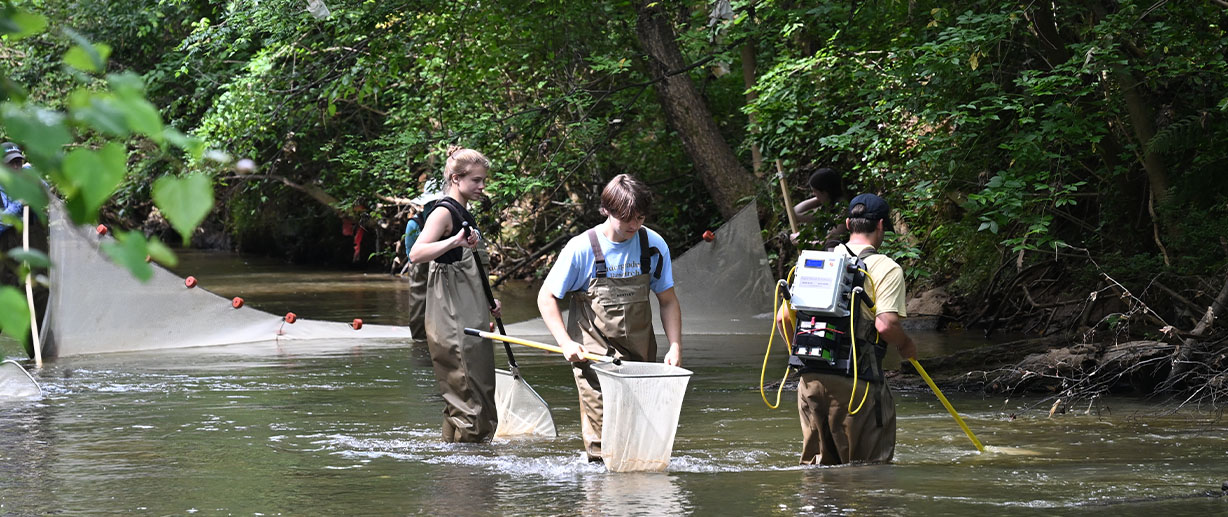Spartanburg County is one of the fastest growing counties in the country. Two teams of Wofford students are conducting research to determine the impact of that growth on the area’s water quality.
Dr. Amelia Atwell, visiting assistant professor of biology, and Dr. Johnathan Davis, assistant professor of biology, are directing the teams, which are measuring the aquatic biodiversity of Lawson’s Fork Creek and its tributaries.
“Everybody is moving here, and there is construction all over the place,” says Davis. “We’re looking at what happens to this water when that occurs. We all live downstream from somewhere, and we depend on this water supply for municipal uses and drinking water. We have to be stewards of that. This is one of the ways we can assess the quality, and we can come back five to 10 years from now to see how things have changed over time as we continue to change.”
Wofford students participating in the project are Willow Conley ’25, a biology major from Bluffton, South Carolina; William Edwards ’24, an environmental studies major from Louisville, Kentucky; Owen Gilley ’26, a biology major from Spartanburg, South Carolina; Harlan Glenn ’25, a biology and finance double major from Lighthouse Point, Florida; Jill Hethcox ’24, a biology major from Charleston, South Carolina; and Devon Taylor ’24, a biology and chemistry double major from LaGrange, Georgia.
The students are measuring the diversity of fish, crayfish and insects at different points along the creek, as well as checking pH levels and oxygen concentrations. The greater variety of species and the higher the number of each, the better the water quality. In one stretch of the creek they found a number of mayflies and caddisflies.
“Both orders have relatively sensitive species,” says Atwell. “Having more sensitive species is an indicator of better water quality.”
Edwards says the project is giving him needed experience in the field. His goal is to become a fish biologist.
“We’re looking at land use,” he says. “We’re trying to find a correlation between fish growth and fish health and how people are using the land.”
The students will present their findings to the Wofford community and at regional conferences. They also will share their results with the state Department of Natural Resources.
Hethcox says the project is equally beneficial to Spartanburg County and to the students taking part.
“Spartanburg is getting an idea of how healthy its streams are,” she says. “But it’s an important learning experience for us that’s helping us gain a diverse skill set.”
